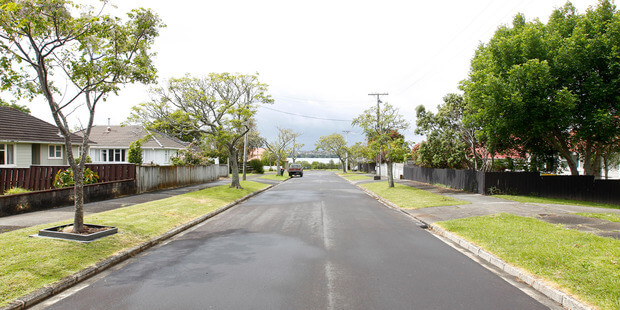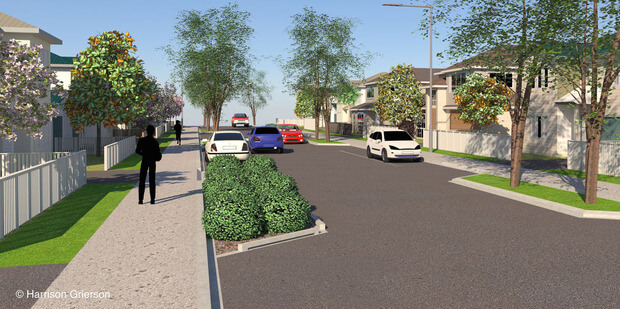While it may be overdue and a good financial shake up is in order it is interesting to see where Council are looking to save. Hopefully there is more depth to their analysis than is reported.
In my opinion, based on work we are doing, there are significant changes that can be made across the city that will reduce capital spending and reduce ongoing operational costs. There are also significant cost implications in some of the new standards being promoted and if Council are serious about reducing their own costs and improving the affordability of housing they might want to reconsider the direction certain things are taking.
An example –
We have recently completed an analysis in the Flat Bush area. Of the 405ha area we studied Council structure plans have about 48% of the land earmarked for public ownership by way of either roads or reserves. Roads are a necessary evil and while a lot of the proposed reserve areas also provide a necessary stormwater conveyance and ecological function this is an extraordinary amount of public land that will have to be purchased (reserves only) and maintained long term.
However all credit to certain groups within Council.
We were recently engaged by Council (SW) to optimise their treatment needs in this area and we have reduced the number of land hungry devices from 5 to 2. At the same time we suggested making some alterations to the proposed reserves to reduce the amount of land required while
1) Still meeting Council’s operational, social and environmental objectives
2) increasing the amount of development in the area and consequently the rates base with which to maintain the reserves long term
A number of departments have climbed on board and are in support of the proposal which will provide capital cost savings to Council in the order of $7 – 8 million dollars while reducing operational costs, providing more housing and increased rates base with which to pay for things. This is one small area (30ha) and if this were extrapolated out the savings in Flat Bush alone are huge – if only the wider Council adopt what some within are already doing. Sure, you have to worry about mowing costs but if they are an issue isn’t it prudent to try and reduce how much you have to mow?
The new standards are another issue.
We are working on several Special Housing Area Projects adopting the new rules and standards. As a consequence we have been looking at how we implement new stormwater treatment rules. There seems to be a definite push in the new rules to drive costs onto the user with at source treatment and detention rather than traditional Council owned facilities. At the same time rain gardens to treat runoff from roads is in vogue.
I can understand why Council might want to push costs to the user but what seems to have been overlooked is that in doing so they are increasing their own costs at the same time. The capital and operational costs of rain gardens at the scale promoted outweighs the cost of maintaining a communal facility based on our assessments. On the one hand we are trying to intensify and yet are adopting practices that often result in inefficiencies of land use. If road reserves are widened to accommodate rain gardens as will inevitably happen in many cases you have to factor the cost of land and maintenance
I don’t see a great deal of evidence that the downstream outcome for stormwater is any different between standards apart from the fact that the new standards look to be costing both home owner and Council a great deal of money. What is going on?
It doesn’t make any sense to me – why would you add extra cost to housing in the face of a housing affordability crisis if you aren’t saving money yourself and a net overall benefit was the outcome – in this case both parties lose – significantly!
I am pleased to see Council looking at savings but am fearful that, as reported, they are looking at cutting back on things that may very well be needed in the big when some common sense and a better commercial understanding of the effect of their decision making at a planning and operational level might make a serious difference.
http://www.nzherald.co.nz/business/news/article.cfm?c_id=3&objectid=11289315






